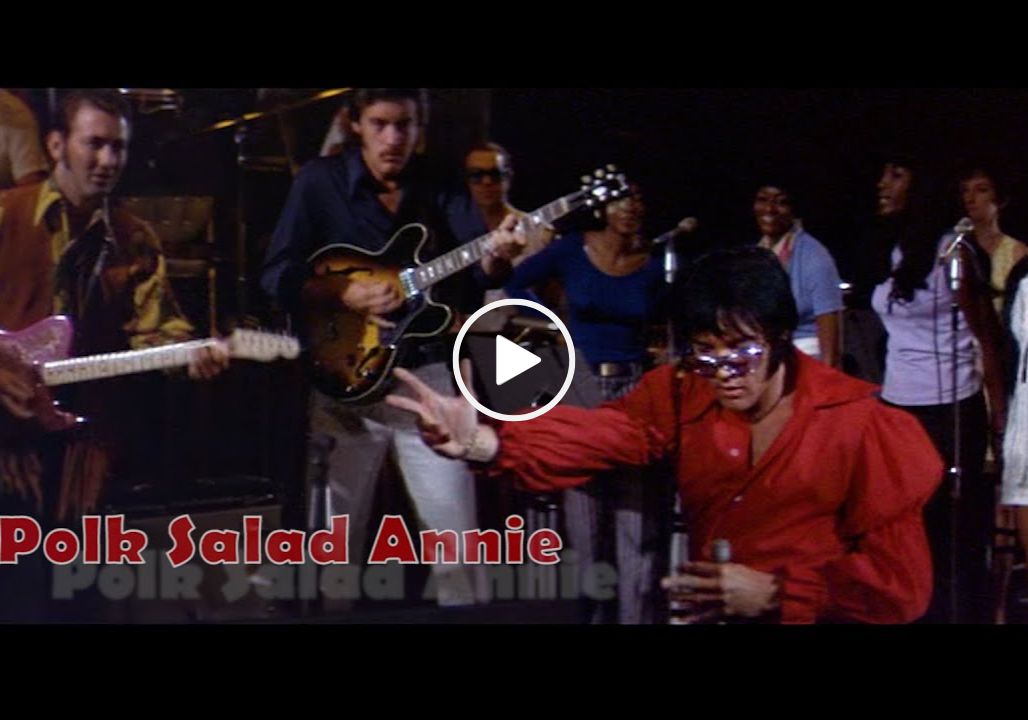Introduction

“Polk Salad Annie,” a lively rock and roll tune delivered with Elvis Presley’s signature charisma, isn’t just catchy; it’s a window into a specific Southern culture and time period. While the song’s exact origins remain unclear, it’s believed to have emerged from the American South sometime in the 1930s or 40s.
The title character, “Polk Salad Annie,” is a woman living in poverty, likely in Louisiana. The lyrics paint a picture of a harsh reality: her mother works on a chain gang, her father is lazy, and her brothers steal watermelons. Annie’s only solace seems to be “polk salad,” a wild greens dish commonly found in the Southern United States.
Elvis first encountered the song in the early 1970s during his Las Vegas residency. Impressed by its energy and relatable story, he began incorporating it into his live shows. His electrifying performances, complete with his characteristic stage presence and improvisation, breathed new life into the song.
“Polk Salad Annie” quickly became a fan favorite, showcasing Elvis’s ability to connect with audiences through both established hits and lesser-known gems. The song transcended its roots, transforming from a local Southern tale into a powerful rock and roll anthem enjoyed by audiences worldwide.
So, the next time you hear “Polk Salad Annie,” remember that it’s not just a song; it’s a glimpse into a bygone era, a celebration of Southern culture, and a testament to Elvis Presley’s enduring legacy.
